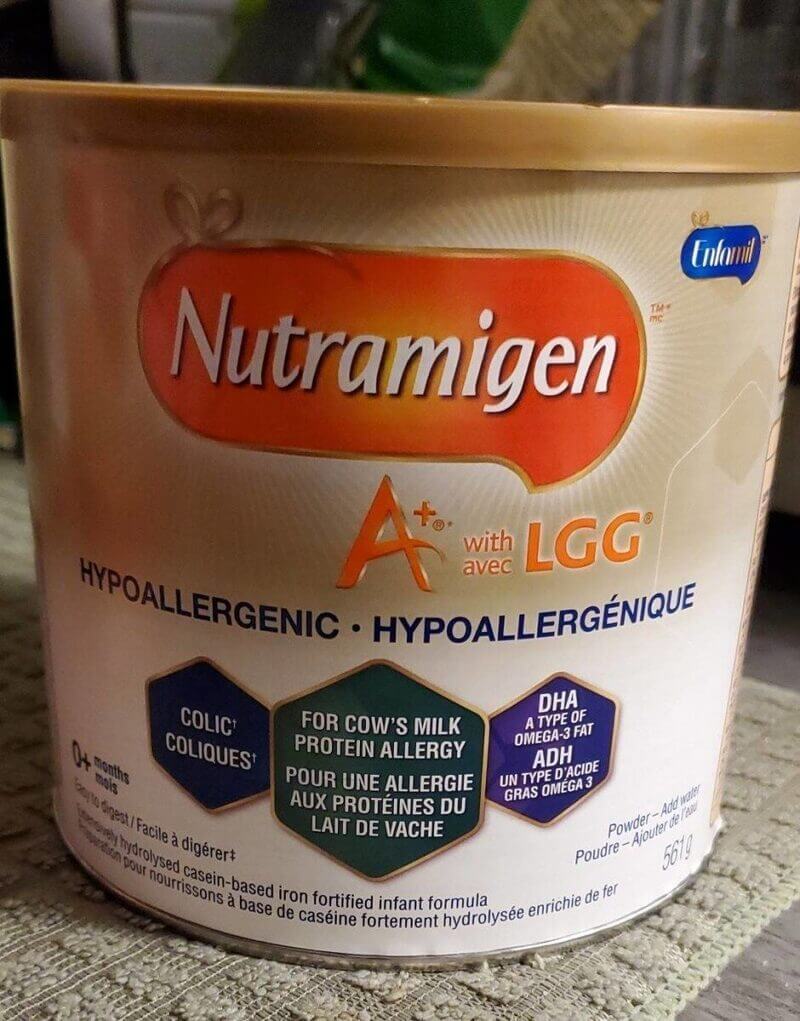If you’re a parent or caregiver of a child with an allergy to dairy milk, finding a suitable infant formula that meets all your child's nutritional needs can be like finding a needle in a haystack.
Especially if the baby has an allergy to soy, one of the most popular cow's milk alternatives for infants with lactose intolerance.
Nutramigen doesn't contain milk or any cow's milk protein. It's an extensively hydrolyzed infant formula that breaks down whey and casein - the proteins in cow's milk responsible for allergic reactions in those with lactose intolerance/dairy allergies - into smaller pieces.
There are partially hydrolyzed infant formulas that also break the proteins down. Still, in these cases, the whey and casein are partially intact and unsuitable for children with milk allergies.
Is there Milk in Nutramigen?
No, there is no milk contained in Nutramigen. Being an extensively hydrolyzed formula, the cow's milk proteins - whey and casein - are broken down entirely.
As the infant becomes a toddler and no longer needs formula, many dairy-free milk alternatives are available that contain comparable nutrition to cow's milk.
These alternatives include nut milk - like almond milk - and milk derived from seeds and grains.
Related: Is Almond Milk Good For Pregnancy?
What is Nutramigen?
Nutramigen is a specialty infant formula designed for babies with food allergies - including an allergy to cow's milk - for whom breastfeeding isn't an option.
Since cow's milk proteins - whey and casein - are found in most standard baby formulas, Nutramigen is extensively hydrolyzed, meaning that both whey and casein are broken down into the smallest possible pieces.
Hence, it no longer triggers allergic reactions in those with milk allergies.
Babies who consume Nutramigen usually also have an allergy to soy, eliminating soy-based formula as an alternative.
Soy allergy is common in both children and adults.
Nutramigen can also ease colic in infants without food allergies due to its ease of digestion.

What are the Different Formula Alternatives?
When breastfeeding isn't an option, infant formula is the only alternative that offers comparable nutrition.
While baby formula comes in many different brands under many other names, all formula falls into one of five categories:
- Milk-based formula - offer complete nutrition for infants, though in some cases, infants can develop an allergy to cow's milk after consuming this formula. Cow's milk is the most common food allergy in infants.
- Soy-based formula - uses soy protein instead of cow's milk proteins
- Partially hydrolyzed formula - made by partially breaking down cow's milk proteins, usually to aid in better digestion in infants with colic or excessive spit-up. Not used for children with dairy allergies.
- Extensively hydrolyzed formula - this category contains Nutramigen and fully breaks down cow's milk proteins, so it no longer triggers an allergic reaction.
- Amino acid-based formula - used as supplementary nutrition for infants and children who require additional nutrition
What is Nutramigen Used For?
Nutramigen is most beneficial for infants and toddlers who have:
- Food allergies - including allergies to cow's milk and soy
- Celiac disease - a digestive condition where the body doesn't properly process wheat
- Crohn's disease - an inflammatory bowel disease that can lead to diarrhea, fatigue, and malnutrition
Infants without food allergies can also benefit from Nutramigen when dealing with colic and temporary digestive upset unrelated to allergies.
